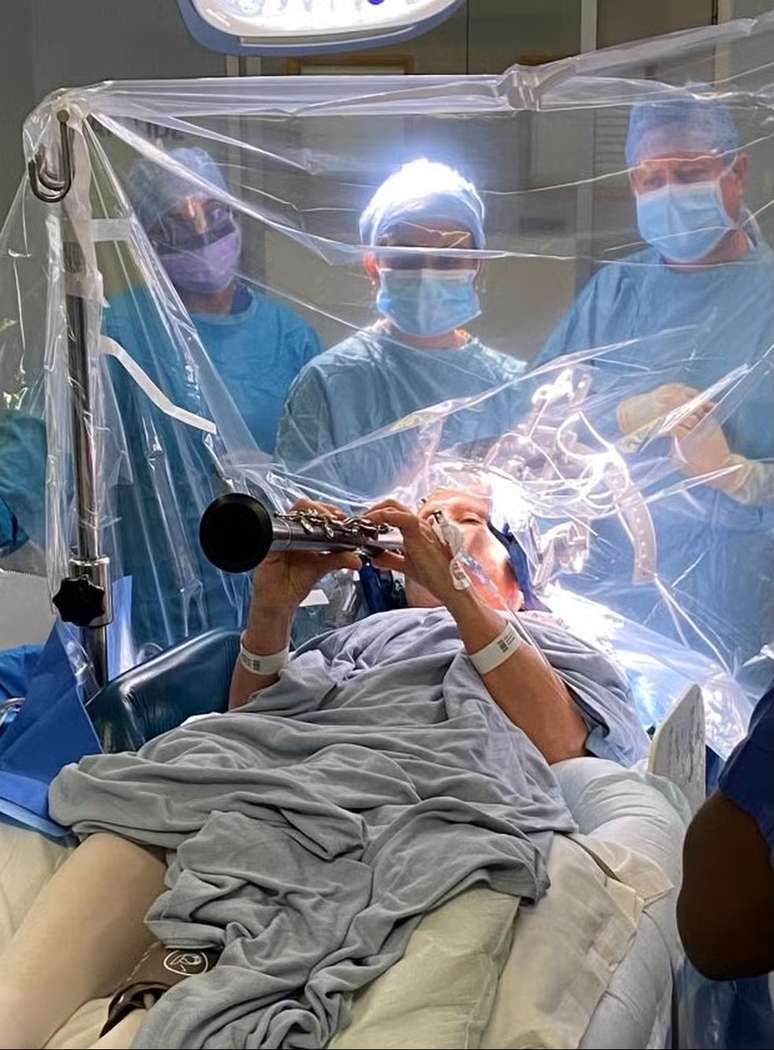The brain stimulation procedure allowed a 65-year-old patient to regain motor skills he lost years ago
A British woman who had lost movement due to Parkinson’s disease surprised doctors by returning to playing the clarinet during surgery at King’s College Hospital in London. The procedure, carried out using deep brain stimulation, restored the patient’s motor control compromised by the disease.
Receive the main news directly on WhatsApp! Subscribe to the Terra channel
Denise Bacon, 65, is a speech therapist and has always maintained a strong connection with music.
Diagnosed in 2014, he saw his routine change as the disease progressed. The constant tremor and muscle stiffness forced her to stop playing, swimming and dancing, activities that were previously part of her daily life.
The treatment she underwent consisted of the implantation of electrodes in specific regions of the brain. Connected to a small generator, similar to a pacemaker, these devices emit electrical impulses that can regulate brain activity and reduce motor symptoms.
During the operation, which was carried out under local anesthesia and lasted about four hours, Denise remained awake. Once the impulses were activated, she regained the precision of her finger movements and was able to play a few notes on the clarinet. The moment was greeted with emotion by the medical team.
The patient said she noticed the effect almost immediately. “I felt my hand move more lightly and that allowed me to play again. It was an indescribable feeling,” he said. Before Parkinson’s disease progressed, he was part of an amateur orchestra, which he had to leave about five years ago.
Parkinson’s disease is caused by reduced production of dopamine, a substance responsible for coordinating body movements. Deficiency of this neurotransmitter causes tremors, slowness and stiffness, making simple daily activities difficult.
According to experts at King’s College Hospital, deep brain stimulation is indicated for patients in an advanced stage of the disease, when the use of drugs no longer has any effect. The technique has shown promise in improving quality of life and recovering lost motor functions.
With the success of the surgery, Denise should return to playing regularly and resume some of the activities she had to abandon. Doctors consider this case an example of the progress neurosurgery has made in treating movement disorders.
Source: Terra
Ben Stock is a lifestyle journalist and author at Gossipify. He writes about topics such as health, wellness, travel, food and home decor. He provides practical advice and inspiration to improve well-being, keeps readers up to date with latest lifestyle news and trends, known for his engaging writing style, in-depth analysis and unique perspectives.







